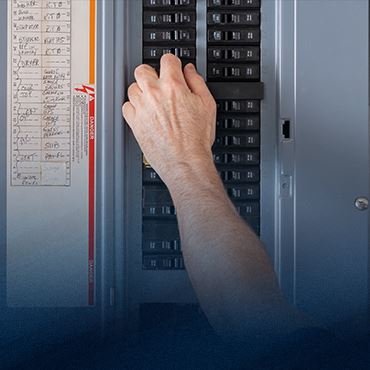Cyber Inflection Point: Teetering on the Edge of Technological Transit
.jpeg)
Cyber Inflection Point: Teetering on the Edge of Technological Transition
Our global society is going through a difficult period that is producing a lot of anxiety, alienation and anger. What underlies these negative feelings is a social transition known as an inflection point, or a shift from a culture based on one set of technologies to another. An inflection point is not the beginning or end of the transition. Rather, it is the point where change is widely felt to be inevitable. Currently, the inflection point we are experiencing is the shift from a mechanical society to a cyber society accelerated by the advent of generative AI, or GenAI.
Understanding this particular inflection point will help us find tangible, active ways to reassure people that they will not be unduly hurt as the transition progresses, thereby reducing the worst of the negative feelings that can otherwise lead to serious cultural and social damage. If we find a good way to do that and implement it in time, we can deal with every other challenge we face.
The shift to a cyber society dismantles culture as we know it
Inflection points bring with them significant cultural changes. Social anchors individuals held onto in times of trouble may no longer be the stable points they once were. This is what is causing the level of anxiety, alienation and anger we are seeing. Some historians suggest that the US Civil War was driven by similar feelings around the inflection point between an agricultural and an industrial society.
As we traverse the inflection point from a low variable, highly standardized mechanical culture to a high variable, cyber-influenced one, there can only be further insecurity. Our culture is highly dependent on the kind of technology we use, so a shift in technology means a shift in culture. In the recent past, our culture reflected mechanical technology. Mechanical technology requires no variability and only needs a limited number of standards, such as uniform gears in a machine. This sense of limited variability around a few well-developed standards pervades a mechanical culture. This leads to a limited number of standardized religions, political parties, genders and gender roles.
In contrast, cyber technology does not require the same kind of limited variability. In place of standardized gears, cyber operates on well-defined interfaces, places where independent systems meet and communicate with each other. A multitude of systems are allowed as long as they have well-defined interfaces. This leads to a profusion in the number of religions, political parties and even genders as our society begins to reflect cyber technology. One example is the “interface” identification seen in the underground gay community of years past. Different colored handkerchiefs worn in different pockets helped identify which of the profusion of genders a person was. The same goes for professions and political parties. In the last US presidential election, more voters identified as independent than as members of one of the two key parties.
Social changes are increasing rapidly
The current inflection point anxieties are compounded by the appearance of GenAI in nearly all sectors of society from public to private. A friend of mine once characterized GenAI as a newborn baby just leaving the hospital. As a society, we are just beginning the process of figuring out how to use it. However, it is increasing in power and profusion rapidly. The economic benefits behind GenAI are so substantial that deployment of the technology – and by extension, cyber society – can’t be stopped. To understand the extent of the transition to a cyber society, it can be helpful to look at a few examples.
Farmers who never touch dirt
Looking down the road, we can envisage a farmer who never touches dirt. Farmers would work from an office and order autonomous vehicles to perform common farming tasks such as maintaining the irrigation, planting seeds, harvesting, and delivering the harvest to a buyer. Eventually, the farmer doesn’t even have to sit at a computer. GenAI agents will take over actions such as choosing planting dates, types of crops, and even specific vendors and buyers. At the final stage, the farmer may not even own land. In a further effort to break up vertical integration, GenAI will choose where to grow crops and even arrange to rent land in the chosen area. An automated farming project called Roboton Farmer is already underway – automation is moving fast.
Scientific research and software development
A study reported that more than 17.5% of recent papers submitted to scientific journals have been written by GenAI. Also, GenAI has written between 6.5% to 16.5% of the peer review analyses supposedly written by the experts who determine if the papers are suitable for publication. Soon, GenAI will do the research itself. In addition, GenAI is already creating software. My programmer friends consider the results are, at best, a good first draft that still requires manual effort to get it good enough to put in production. Over time, GenAI software quality will improve as the technology matures. We will see large critical systems running on GenAI-created software. Eventually, some say, GenAI will create the next generation of AI systems.
Restaurants
In Japan, a declining population is driving the need for automation. Currently there are even some restaurants with no waiters or waitresses. While there are still human kitchen staff, all customer service is reliant on robots. At each table there is a small robot that takes orders and payment. Another robot delivers the food. In the future, GenAI will look at the customers and listen to their voices, deciding based on what they see and hear what kind of food to recommend. The kitchen will also be automated by GenAI agents and the possible menu of dishes will be quite large.
Of course, these are projections. Noncentralized agents powered by GenAI are just beginning to appear. However, these agents will undoubtedly turbocharge existing automation trends and cause far-reaching effects well beyond what has previously been considered. The full extent is not clearly foreseeable yet. But enough is visible that anxiety surrounding the shift is already being felt on all levels, from individual to global. Even nations are beginning to feel the strain.
On the international stage, a cyber society means shifts in relations
Individuals rely on their nation for security against other nations coming and taking things away. In a mechanistic world, to avoid being a loser, a nation has to have the ability to produce the machinery of war as fast as or faster than other nations. This requires a large nation with large quantities of natural and human resources. However, the way conflicts are conducted is changing. Smart weapons are more effective than big machines. In Ukraine, drones costing a couple of hundred dollars are defeating multi-million dollar tanks. Cyber weapons are already appearing on the Ukraine battlefield.
In a cyber society, it is the ability to “out-think” rather than “overpower” that wins. As our quality of life, and sometimes survival, depends more and more on cyber systems, protecting them from cyber attack becomes critical. The rapid increase in successful cyber crime has urged nations to turn to the development of chip and software technology. Instead of extensive factories, think tanks and technology development companies provide the basis for a strong economy.
Focus on cyber development means that large nations may no longer be critical to national security. The city state of Singapore may be the model of the future. For example, some point to the fact that the San Francisco Bay Area, if measured as a nation state, would be the 5th largest economy in the world. Such a shift will allow smaller, developing countries to build stronger economies and establish larger global presences. However, this leads to more anxiety for the nations that already have powerful global presences.
Limiting damage must be our top priority
Unfortunately, the economic and technical forces that drive these transformations can’t be reversed. Anxiety and alienation create a desire to stop the inevitable, but the impossibility of that creates dangerous levels of anger. People begin to act out in personally, socially and politically destructive ways. It seems that there is only one approach that can work: to provide the assurance that a respectful quality of life will be maintained even after such a large-scale social transition.
However, many people will not accept simple assurances, especially since experts’ assurances don’t often match with their lived experiences. Economist Paul Krugman, in a recent interview discussing his work on globalization, said that he made a big mistake. He had looked at the number of job losses in the context of the whole US economy and concluded that they were not significant. His mistake was that he didn’t recognize that the job losses would not be uniformly distributed. That they would be concentrated in specific towns or communities, and as such, those communities would be irrevocably devastated.
Comments
You must be logged in to comment.
Latest Articals
-
Why Mental Health Support Is Essential for Long-Term Wellness
Long-term wellness is not only about physical fitness or the absence of illness; it also depends heavily on emotional stability and psychological balance. In today’s fast-paced world, people face constant pressures from work, relationships, finances, and social expectations. Without proper support, these pressures can slowly affect emotional health. Access to Mental Health Resources plays a vital role in helping individuals manage challenges, maintain balance, and build a healthier future.Understanding Emotional Well-Being and Its ImportanceEmotional well-being influences how people think, feel, and respond to everyday situations. When mental health is neglected, even small problems can feel overwhelming. Over time, unmanaged stress and emotional strain may lead to anxiety, burnout, or persistent low mood. Recognizing emotional needs early allows individuals to take proactive steps before issues become deeply rooted.Support systems focused on mental health help people understand their emotions, develop self-awareness, and respond to life’s challenges more effectively. These systems are not...
-

Your Go-To Commercial & Residential Plumbing Experts in Conyers – tksons
Plumbing is one of those essential systems that often goes unnoticed—until something goes wrong. From unexpected leaks to major system failures, plumbing issues can disrupt both homes and businesses in an instant. That’s why having experienced commercial plumbing contractors in Conyers and dependable residential plumbing services in Conyers is crucial. tksons has become a trusted name in the Conyers area by delivering reliable, efficient, and long-lasting plumbing solutions for every type of property.Comprehensive Commercial Plumbing Services in ConyersCommercial plumbing requires precision, experience, and a deep understanding of complex systems. Businesses depend on properly functioning plumbing to maintain hygiene, safety, and daily operations. As leading commercial plumbing contractors in Conyers, tksons provides tailored plumbing services for offices, retail stores, restaurants, apartment complexes, and industrial facilities.Our commercial services include pipe installation and repair, water supply line management, drainage and sewer services, restroom plumbing, and preventive maintenance programs. We understand that downtime can be costly, so our team works efficiently...
-

Expert Electrician in Buckhead Offering Safe & Modern Electrical Solutions | mccelec
Electrical systems play a crucial role in keeping homes and businesses safe, functional, and efficient. From powering daily activities to supporting advanced technology, reliable electrical work is essential. If you’re searching for professional electrical services in Buckhead, mccelec is your trusted local choice, delivering dependable solutions backed by experience, safety, and quality workmanship.The Importance of Hiring a Qualified Electrician in BuckheadElectrical issues are not just inconvenient—they can be dangerous if handled improperly. Faulty wiring, overloaded circuits, or outdated panels can increase the risk of fires, power failures, and equipment damage. Hiring a certified electrician Buckhead property owners trust ensures that every job is completed according to safety standards and local electrical codes.With mccelec, you get skilled electricians who understand the complexities of modern electrical systems and provide solutions that are both effective and long-lasting.Complete Residential Electrical Services in BuckheadYour home’s electrical system should be safe, reliable, and designed to meet your lifestyle needs. mccelec offers comprehensive...
-

Best Computer Academy in Jaipur – Learn Skills That Build Your Career
In today’s digital world, computer education is no longer optional—it is a necessity. Whether you are a student, job seeker, or working professional, learning the right computer skills can open many doors. Jaipur has become a growing hub for quality education, and choosing the right institute can make a big difference in your future.If you are searching for the best computer academy in Jaipur, best training center in Jaipur, or best coaching institute in Jaipur, this blog will guide you clearly and honestly.Best Computer Academy in JaipurWhen students search for the Best Computer Academy in Jaipur, they look for quality education, practical training, and career support. A good computer academy should focus on real-world skills, updated courses, and experienced trainers.GPS Computer Academy, Jaipur stands out because it offers AI-Powered Education and Training designed for today’s competitive world. The academy focuses on helping students understand concepts easily and apply them practically....
-
.jpeg)
Adult Orthodontic Options for Healthier, Aligned Smiles in Sea Girt, NJ
Adult orthodontic treatment has become an increasingly popular choice for improving both dental health and appearance. At Your Dentalist in Sea Girt, NJ, adults have access to modern orthodontic options designed for comfort, discretion, and efficiency. Straighter teeth are not only about aesthetics but also about maintaining long-term oral health.Many adults seek orthodontic care to correct shifting teeth, bite problems, or alignment concerns that were never treated earlier. With today’s advanced solutions, achieving a healthy, aligned smile is more accessible than ever. Why Adults Choose Orthodontic TreatmentAdult orthodontic care addresses issues that can affect daily comfort and dental health. Misaligned teeth may contribute to uneven wear, jaw discomfort, and difficulty cleaning certain areas. Orthodontic treatment helps correct these problems and supports overall oral function.Beyond health benefits, orthodontic care enhances confidence. A well-aligned smile often improves personal and professional interactions. Common Orthodontic Concerns in AdultsAdult patients often experience dental changes over...
-

How AI-Powered Link Building Is Replacing Traditional SEO Outreach
For years, link building meant endless emails, uncertain replies, and backlinks that didn’t always improve rankings. In 2026, that model is breaking fast. Businesses now want clarity, control, and competitive data—not guesswork.This shift has pushed SEO teams toward intelligent platforms that combine link building services, link building marketplaces, and SEO link building services into one streamlined workflow. Vefogix sits right at the center of this evolution.Link Building Services: Moving Beyond Random BacklinksLink building services are designed to help websites earn authoritative backlinks that improve search visibility. But modern SEO demands more than simple link placement.Outdated services often:Focus on quantity instead of relevanceHide publisher detailsProvide links without performance insightsToday’s link building services are strategy-driven, guided by competitor data and real-world results.How Vefogix Redefines Link Building ServicesVefogix applies AI to the entire link-building process:Identifies backlink sources already working for competitorsHighlights trusted, niche-relevant websitesEliminates risky or low-value domainsGives full transparency before you investThis...